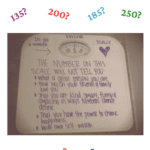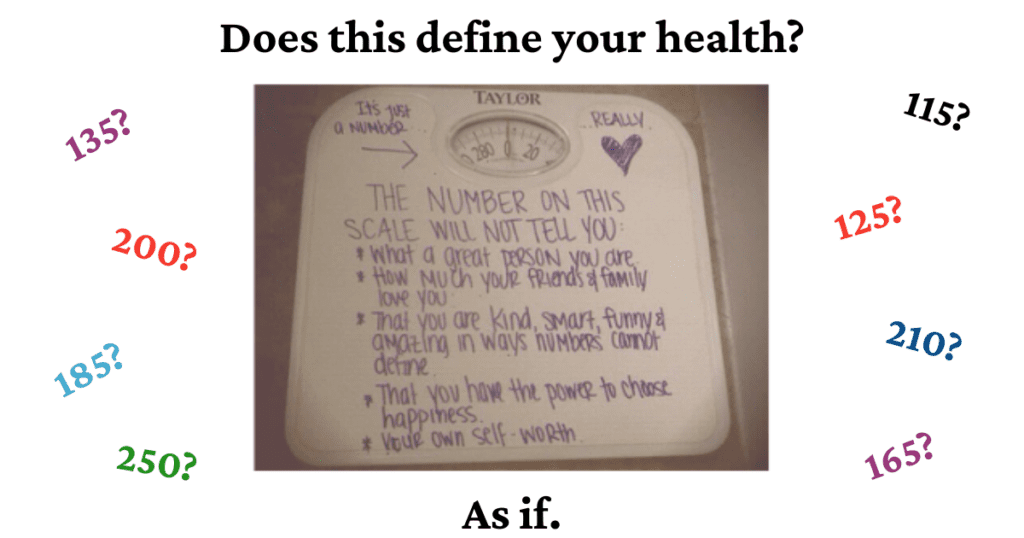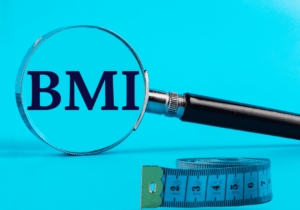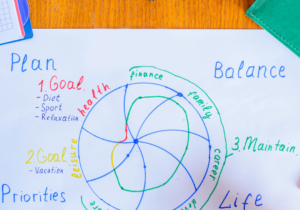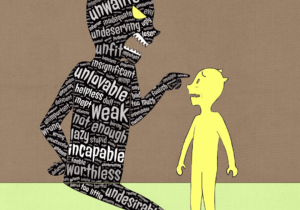How To Be Healthier Without The Scale
In my three years as a personal training manager, the biggest part of my job was completing fitness consultations for new members. In this capacity, I interviewed hundreds of people about their fitness goals and desires. Most people cited “weight loss” as their number one goal, a measure of health not really surprising at a gym.
What was surprising was the most common answer to my follow-up question.
Why do you want to lose weight?
Most people answer “be healthier.”
It didn’t matter their weight. Almost everyone had a weight goal. As if the number on the scale could define their health.
While people tend to look at the scale as the most predominant factor in assessing health, it’s impossible to know if someone is “healthy” just by looking at them or using the scale. Furthermore, our perception of health as a viewable or scale-measurable metric can actually be detrimental - emotionally, socially, and even physically.
Why the number on the scale doesn't define you
A perception of health that begins and ends with the scale causes irreparable harm to our emotional state of being. In a famous Esquire magazine survey from 1994, 54% of women surveyed would rather be hit by a truck than being considered fat. This very idea leads to a preoccupation with weight and the number on the scale.
How many times has your mood for the day been determined by what number showed on your scale first thing in the morning?
Have you ever stared at the scale in disbelief, stepped off, and stepped back on again just to see if it changed?
(Hand raised. I used to be guilty of this daily.)
So how do you break yourself of this? Change your narrative. I use various techniques with my clients for this, from a scale break to a mantra each time they step on the scale that reminds them to see and forget.
How the scale holds you back
In addition to our emotional state, perception of health dependent on the scale also hurts us socially. Things people say and think:
Example: Think back to your interactions with people at a restaurant. I would bet money that someone mentioned “being good today” or a “cheat meal.” Or that calories didn’t matter because it was a birthday.
Or maybe one of your friends didn’t go out with you because eating out caused too much pressure for them.
In each of these cases, a perception of health solely based on the scale can lead to a diminishment in our social interactions.
Break free
Interestingly enough, the opposite of this also appears to be true. When you break free from the scale as your measure of health, participating in conversations about weight, calories, and guilt from food becomes incredibly difficult.
However, instead of being socially awkward, think of it as a way to talk about more interesting things than food and the recent diet craze. Imagine what more engaging topics you and your friends could discuss!!
When the scale becomes deadly
It seems counterintuitive to say that physical health is harmed by a perception of health that relies on the scale. However, the statistics on eating disorders prove otherwise.
My first interaction with eating disorders was a book I read as a teenager where the protagonist was trying to lose weight for the cheer squad. That was part of the equation of a life controlled by disordered eating. For decades, the only thing that stood between me and anorexia was a lack of willpower. I considered my very lack of this life-threatening disorder a personal failing.
Because I believed that the number on the scale was what determined my health, it was years before I understood that I was not alone.
According to a survey conducted by UNC-Chapel Hill, 75 percent of women report disordered eating behaviors or symptoms consistent with eating disorders, and 39% of women say concerns about what they eat or weigh interferes with their happiness. In fact, according to the National Association of Anorexia Nervosa and Associated Disorders (ANAD), eating disorders are among the deadliest mental illnesses - second only to opioid overdose.
A key diagnostic marker in many eating disorders is a preoccupation with weight. When we view the scale as the sole determining factor in our health, it can lead to deadly disorders. While treating eating disorders is outside my scope of practice as a personal trainer and nutrition coach, I help coach clients on behaviors that promote healthy living - small habits that promote more lasting results.
A better solution: What is a measure of health?
At the beginning of my career as a personal trainer, I put my clients on the scale to “measure progress” every two weeks, using it as a measure of health. I didn’t understand then how harmful that was to my clients and the discussion of health in general.
As a result, I no longer use the scale indiscriminately with all of my clients. Instead, my clients determine their own measures of progress for themselves. From sleep quality to energy levels to quality of life, they decide how to gauge their health and wellbeing, plus their perception of their own health changes for the better because of it.

Empowerment expert Bree V. Taylor is a fitness, nutrition, and habit coach who brings hope and awareness to women who struggle with confidence and self-esteem. She has helped dozens of women to reclaim their lives from entrenched expectations and embrace their inner awesome.
Find other articles written by Bree on her coach profile. Working with Bree will help you to step confidently out of comparison and emerge confident in your own unique self.

